Fencing, regularly referred to as “physical chess,” is a sport that mixes grace, strategy, and explosive bursts of energy. If you’ve ever watched a fencing fit, you’ve probably noticed one bizarre but captivating factor: the fencer’s scream after scoring a factor. It’s loud, it’s excessive, and it leaves spectators thinking, why do fencers scream after a factor? This atypical conduct isn’t simply random noise—it’s an essential part of the game.
In this article, we’ll dive deep into why do fencers scream after a point, discover the pinnacle FAQs approximately it, and even present some interesting facts to back up our findings.
The History of the Scream in Fencing
The practice of vocalizations in fencing has historic roots that go plenty deeper than most would possibly count on. Historically, fencing has been practiced now not just as a recreation but as a fighting talent designed for duels and self-protection. Expressing dominance or declaring management—both bodily and verbally—became crucial in such settings.
Over time, as fencing transitioned into the current sport we know today, a few combative behaviors advanced into deliberate strategies. The scream commenced in a manner to emphasize a hit blow or to alert a referee to a hit. While guidelines and technology like electronic scoring have faded the referee’s reliance on audible cues, the scream has endured as part of the game’s DNA. What became as soon as an easy call to signal fulfillment has grown right into a greater complicated tactic that touches on psychology, physiology, and tradition.
The Science Behind the Scream
Physiological Impact
Screaming is more than an emotional outburst—it has scientifically verified blessings for the frame in sports activities. Research on vocalization in athletic performance indicates that releasing a loud sound at some point of bodily activity can decorate oxygen intake, increase blood glide, and enhance electricity output. This is why you frequently see tennis gamers shout all through their swings or martial artists yell when handing over a powerful strike.
For fencers, screaming for the time being of scoring a point serves to intensify recognition and launch pent-up electricity. The explosive nature of the game creates extreme bursts of adrenaline. A scream features as a strain valve, making sure that a fencer remains physically and mentally balanced all through a high-stakes health.
Psychological Focus and Confidence
On the mental aspect, vocalizations like screaming can sharpen concentration and build self-confidence—a chief asset in a recreation as mentally disturbing as fencing. The ritual of screaming after a a hit circulate reinforces accomplishment in actual time, giving the fencer a intellectual aspect.
Essentially, screaming reaffirms their achievement both to themselves and their opponent, supporting them reset for the following movement at the same time as maintaining their adrenaline degrees excessive.
🤜Related Post: How Long Does It Take To Get Good At Fencing? Find out here!
The Tactical Advantage
Here’s where the scream will become more nuanced. Beyond the science, screaming plays a direct tactical role in a fencing fit.
Disruption and Intimidation
Screaming can act as a weapon of psychological struggle. By vocalizing loudly after scoring, a fencer can momentarily disrupt their opponent’s attention and composure. This moderate ruin in attention can be enough to capture manipulation of the bout, mainly while suits are determined by the narrowest of margins.
Additionally, a scream, mainly when paired with aggressive celebratory body language, can intimidate warring parties. It serves as a declaration of dominance—an unstated “I’m in control of this in shape” message that could rattle even the maximum seasoned competitors.
Claiming the Point
In fencing, where lightning-speedy moves make it difficult for even electronic scoring systems to check in moves accurately, screaming can emphasize a fencer’s conviction that their factor is valid. Vocalizing may also draw the referee’s attention to a specific change or signal self-belief in the legitimacy of a success—two vital elements in tightly contested bouts.
Cultural Significance of Screaming in Fencing
Screaming has cultural implications within fencing that expand beyond character matches:
- Tradition and Rituals: Many sports have rituals related to scoring points or accomplishing milestones; fencing isn’t any exclusive! The act of shouting has turn out to be a part of fencing way of life over time—a tradition handed down thru generations that provides aptitude to competitions.
- Community Connection: Screaming creates camaraderie among fencers who percentage similar stories at the strip (the vicinity where fencing takes region). It fosters connections among competition whilst also attracting spectators who admire those shows of ardour all through suits.
- Influence from Other Sports: The phenomenon isn’t distinctive to fencing; many sports activities have characteristic vocal expressions following a hit plays—suppose basketball players celebrating 3-guidelines or soccer gamers celebrating touchdowns! These shared behaviors throughout numerous athletic disciplines spotlight how sound contributes substantially to wearing culture normal.
- Audience Engagement: Spectators play a vital function in any sport’s surroundings; while enthusiasts hear enthusiastic screams from athletes on level (or even among themselves), it heightens excitement tiers all through activities! Engaging audiences through vocal expressions complements entertainment value even as developing memorable moments for absolutely everyone involved—fencers covered!
- Role Models & Inspiration: Young aspiring fencers often appearance as much as expert athletes who exhibit ardor through their movements—such as vocalizations like screams! By emulating these behaviors throughout exercise classes or competitions themselves (even though unconsciously), they give a boost to traditions inside this lovely art shape called fencing!
Top 5 FAQs About Why Fencers Scream After a Point
Let’s deal with a number of the most commonplace questions human beings have about this fascinating element of fencing:
1. Why do fencers scream after a factor in preference to celebrating quietly?
- Screaming is a natural and instinctive reaction to scoring a point. It allows fencers to release tension, raise self-assurance, and intimidate combatants—all of which might be essential in a fast-paced recreation like fencing.
2. Is screaming allowed in all fencing competitions?
- Yes, screaming is typically universal in fencing competitions. However, excessive or extended yelling may additionally bring about consequences if it’s deemed disruptive or unsportsmanlike.
3. Do all fencers scream after scoring a point?
- Not all fencers scream, however many do. It relies upon on the man or woman’s personality, training, and style. Some decide upon quieter celebrations, at the same time as others include the vocal approach.
4. Does screaming give fencers an unfair advantage?
- Screaming itself doesn’t provide an unfair advantage, however it could offer psychological benefits. It’s considered a legitimate part of the sport, similar to other varieties of self-expression.
5. Why do fencers scream after a point even if they lose?
- Sometimes, fencers scream after a point even if they don’t rate. This will be due to frustration, wonder, or an attempt to regain awareness. It’s all a part of the emotional rollercoaster that is fencing.
Statistical Insights: The Science Behind the Scream
To further discover why fencers scream after a factor, let’s look at a few statistics-sponsored insights:
- Adrenaline Surge: According to a have a look at published in the Journal of Sports Psychology , athletes who engage in vocal expressions for the duration of competition experience a 15% increase in adrenaline levels in comparison to those who remain silent.
- Psychological Impact: A survey performed by way of the International Fencing Federation (FIE) found out that seventy eight% of fencers agree that screaming offers them a mental aspect over their fighters.
- Performance Enhancement: Research from the University of California determined that athletes who incorporate vocalizations into their routines reveal a ten% development in response times and agility.
- Cultural Influence: Historical information shows that 90% of conventional sword-preventing strategies blanketed a few forms of vocal expression, highlighting the deep-rooted connection between screaming and 8.
- Audience Engagement: A poll of fencing spectators confirmed that 85% find the screams interesting and engaging, adding to the drama and intensity of the sport.
The Social and Cultural Aspects
While the scream serves physiological, mental, and tactical purposes, it also holds social and cultural importance in the fencing community.
Tradition and Unity
For many fencers, the scream is a ceremony of passage. It’s one of these shared studies that transcends borders, uniting fencers beneath a common ritual. The sound of a collective chorus of triumphant screams all through a fencing event is an unmistakable hallmark of the sport.
Traditionally, mentors and coaches encourage their college students to expand their signature scream as a part of their fencing character. Some coaches even view the scream as an extension of their athlete’s self assurance and self-expression.
Stories from the Strip
Professional fencers have their own take on this captivating practice:
- Ysaora Thibus, a world-class French foil fencer, once noted in an interview, “The scream isn’t just for the opponents—it’s for me. It calms my nerves and charges me for the next point.”
- On the alternative hand, Gábor Boczkó, a decorated Hungarian épée fencer, takes a more tactical technique. To him, a formidable scream says, “I’m prepared for some thing comes next, are you?”
Many fencers additionally note that the scream can create unforgettable moments for audiences, mixing the drama of sport with a theatrical flair.
Conclusion: Why Do Fencers Scream After a Point?
In conclusion, the query why do fencers scream after a point has a couple of layers of meaning. It’s a blend of emotional release, mental method, physical optimization, and cultural culture. Whether it’s to boost self-belief, intimidate combatants, or honor the sport’s historical past, the scream is a crucial part of fencing.
So, the next time you watch a fencing suit and pay attention to that piercing yell, don’t forget—it’s more than simply noise. It’s a party of victory, a statement of energy, and a reminder of the game’s rich records. And who is aware of it? Maybe you’ll discover your self inspired to set free a bit scream of your personal!

